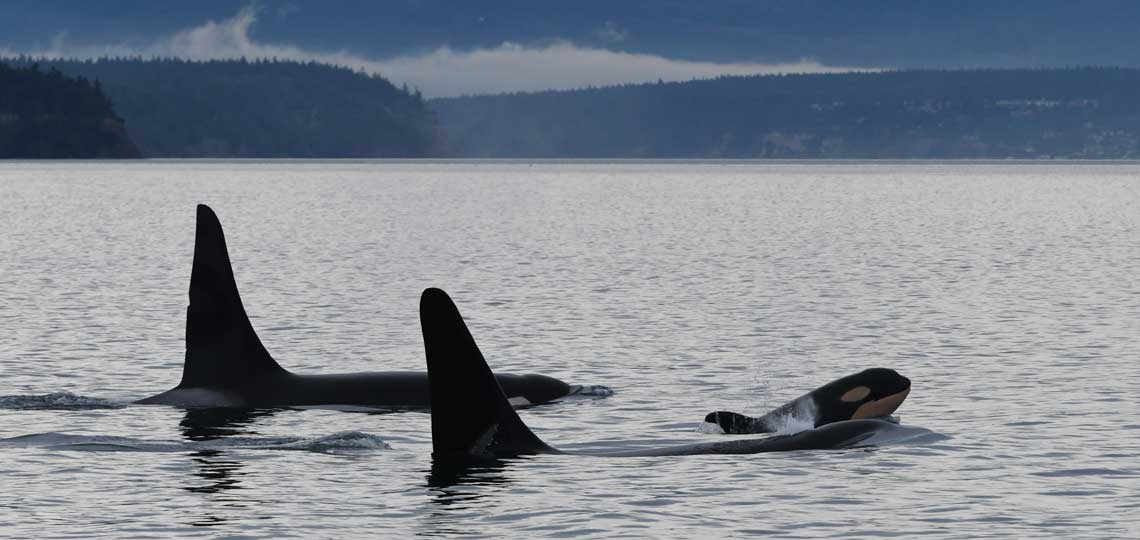VANCOUVER – The Supreme Court of Canada announced today that it will not hear a set of legal challenges to the federal government’s re-approval of the Trans Mountain pipeline project, including a case aimed at protecting endangered Southern Resident killer whales from the project.
If built, the Trans Mountain project will lead to increased tanker traffic and a heightened risk of a catastrophic oil spill off the coast of British Columbia, posing significant threats to the already-imperiled Southern Resident killer whale population.
The Supreme Court receives a high number of leave applications and only grants leave in about 10 per cent of cases.
Spokespeople from Ecojustice, Raincoast Conservation Foundation, and Living Oceans Society released the following statements in response to the Supreme Court’s decision:
Margot Venton, nature program director at Ecojustice, said:
“As a result of today’s decision, construction on the Trans Mountain pipeline project will be allowed to proceed, despite the fact it will push an endangered population towards extinction.
“This scenario should serve as a wake-up call. The Species at Risk Act is a strong law on paper. But if the government is allowed to shirk its responsibilities under that law, then there is something fundamentally wrong with how Canadian species protection works in practice.
“Finally, I want to express my gratitude Ecojustice’s clients, Raincoast Conservation Foundation and Living Oceans Society, for their incredible dedication to protecting Southern Resident killer whales and the B.C. coast. I know they will continue this important work far beyond the life of this case.”
Dr. Paul Paquet, senior scientist, Raincoast Conservation Foundation, said:
“We are disappointed but understand that while the law and justice are ideally connected, they are not always the same. The decision exposes gaps in how the law is applied that leave vulnerable endangered species susceptible to exploitation and abuse, intended or otherwise.”
Karen Wristen, Executive Director at Living Oceans Society, said:
“I am deeply concerned about what today’s decision will mean for the future of the Southern Resident killer whales.
“As of this past summer, only 73 Southern Residents remained. Another whale, L41, has gone missing since then and is presumed dead.
“This iconic population already faces more threats than it can withstand, including a critical shortage of Chinook salmon, the whales’ main prey, ocean traffic and noise, and pollution. It is difficult to imagine how the whales could survive additional threats from Trans Mountain-related shipping – not to mention a potential catastrophic oil spill.”
About
Ecojustice is Canada’s largest environmental law charity. Ecojustice goes to court and uses the power of the law to defend nature, combat climate change, and fight for a healthy environment for all.
Raincoast Conservation Foundation is a team of conservationists and scientists empowered by research to protect the lands, waters and wildlife of coastal British Columbia. As a charitable, non-profit conservation science organization that operates a research lab, research station and a research/sailing vessel, they are unique in Canada.
Living Oceans Society has been a leader in the effort to protect Canada’s oceans since forming in 1998. Living Oceans Society advocates for oceans that are managed for the common good, according to science-based policies that consider ecosystems in their entirety.

